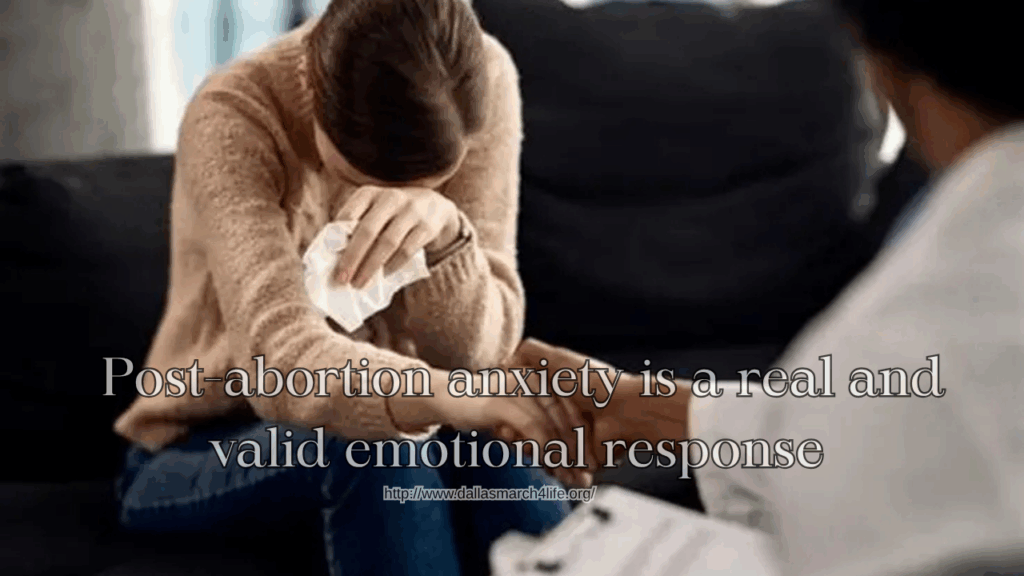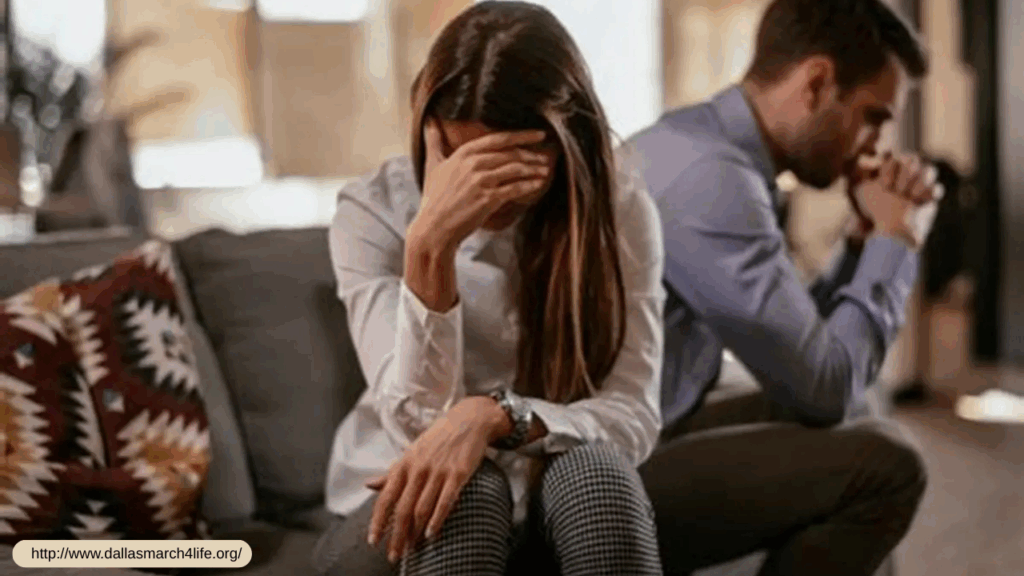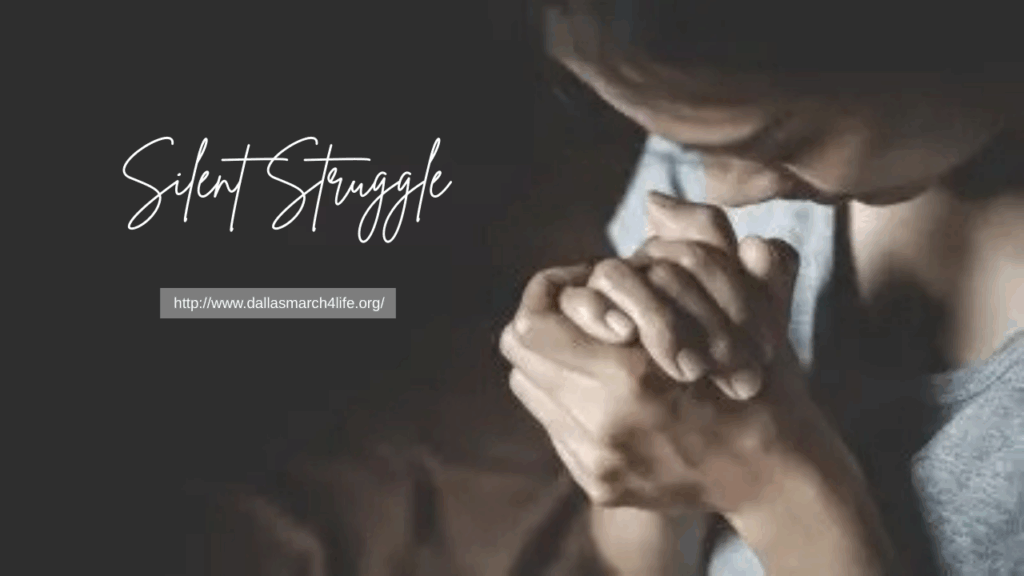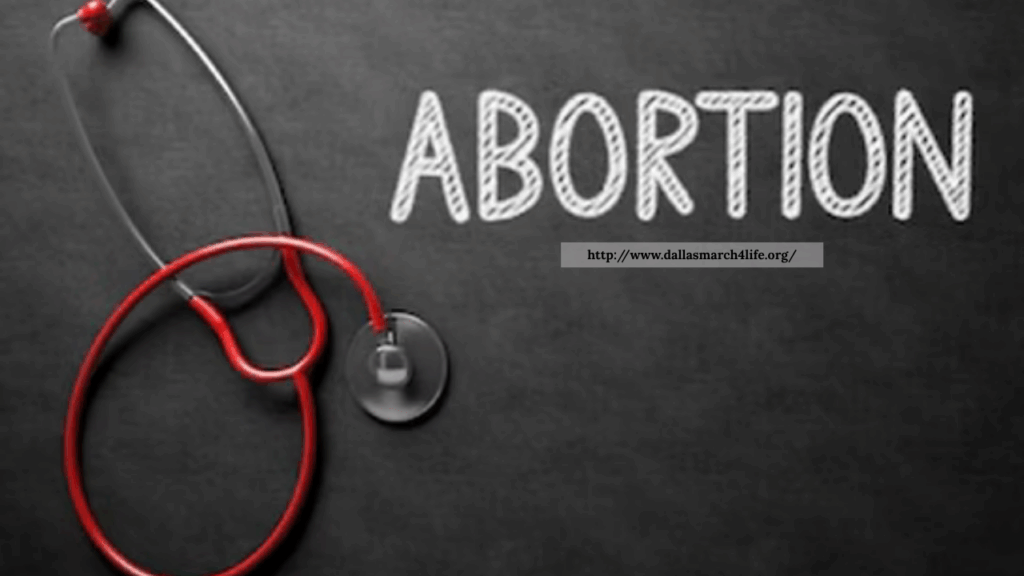
For many women, the decision to have an abortion is complex, emotional, and deeply personal. While some may feel relief afterward, others may experience unexpected waves of sadness, guilt, or anxiety that can be difficult to manage alone. Post-abortion anxiety is a real and valid emotional response that deserves understanding and compassionate care. At Dallas March for Life, we believe that emotional healing is just as important as physical recovery, and that true peace comes from addressing the heart, mind, and spirit together.
Understanding Post-Abortion Anxiety
After an abortion, it’s common to experience conflicting emotions. Feelings of grief, shame, or fear may surface days, weeks, or even months later. These emotional reactions can lead to anxiety symptoms such as racing thoughts, panic attacks, trouble sleeping, or difficulty concentrating. For some, the anxiety becomes overwhelming and begins to interfere with daily life and relationships.
It’s important to recognize that these feelings are not signs of weakness. They are the mind and body’s natural responses to emotional pain. Healing begins with acknowledging these emotions rather than suppressing them, and finding the right environment to process them safely and without judgment.
The Importance of Compassionate Support
Healing after abortion requires more than time—it requires compassionate, personalized support. Many individuals struggle in silence because they fear being judged or misunderstood. A faith-based and holistic approach, like the one offered at Dallas March for Life, helps create a space where emotional restoration feels possible.
Professional counselors and therapists provide tools to manage anxiety, rebuild self-worth, and develop healthy coping strategies. Whether through inpatient or outpatient care, the focus remains on treating the whole person—body, mind, and spirit—so that lasting recovery can take root.
Holistic and Faith-Based Healing
A holistic path to recovery looks beyond surface-level symptoms. It recognizes the deep connection between emotional and spiritual health. Practices such as mindfulness, prayer, and meditation can help individuals quiet anxious thoughts and reconnect with their sense of peace.
Faith-based therapy also provides hope and forgiveness, guiding individuals toward spiritual renewal. When anxiety stems from guilt or grief, faith can serve as a powerful anchor that reminds people of their inherent worth and capacity for healing. At Dallas March for Life, this approach blends evidence-based mental health care with the strength of faith and community, empowering individuals to heal from the inside out.
Practical Steps to Manage Post-Abortion Anxiety
While professional treatment is vital, there are everyday steps that can help calm the mind and support healing:
- Talk to someone you trust: Sharing your story with a counselor or support group can help release emotional tension and provide perspective.
- Establish healthy routines: Balanced meals, regular exercise, and adequate rest strengthen emotional resilience.
- Practice self-compassion: Forgiveness and kindness toward yourself are key to breaking cycles of guilt and anxiety.
- Engage in spiritual reflection: Prayer or meditation can ground the mind and nurture inner peace.
- Seek professional guidance: If anxiety feels unmanageable, structured therapy or inpatient care may offer the guidance and accountability needed to recover fully.
Reclaiming Peace and Purpose
The journey toward emotional healing after abortion is deeply personal, but no one has to walk it alone. Compassionate mental health treatment and holistic recovery programs can help transform pain into peace and restore confidence in the future.
If you or someone you love is struggling with anxiety after abortion, Dallas March for Life is here to help. Our team provides faith-based, individualized care that nurtures emotional and spiritual healing. Reach out today to begin your path toward recovery, renewal, and peace of mind.








